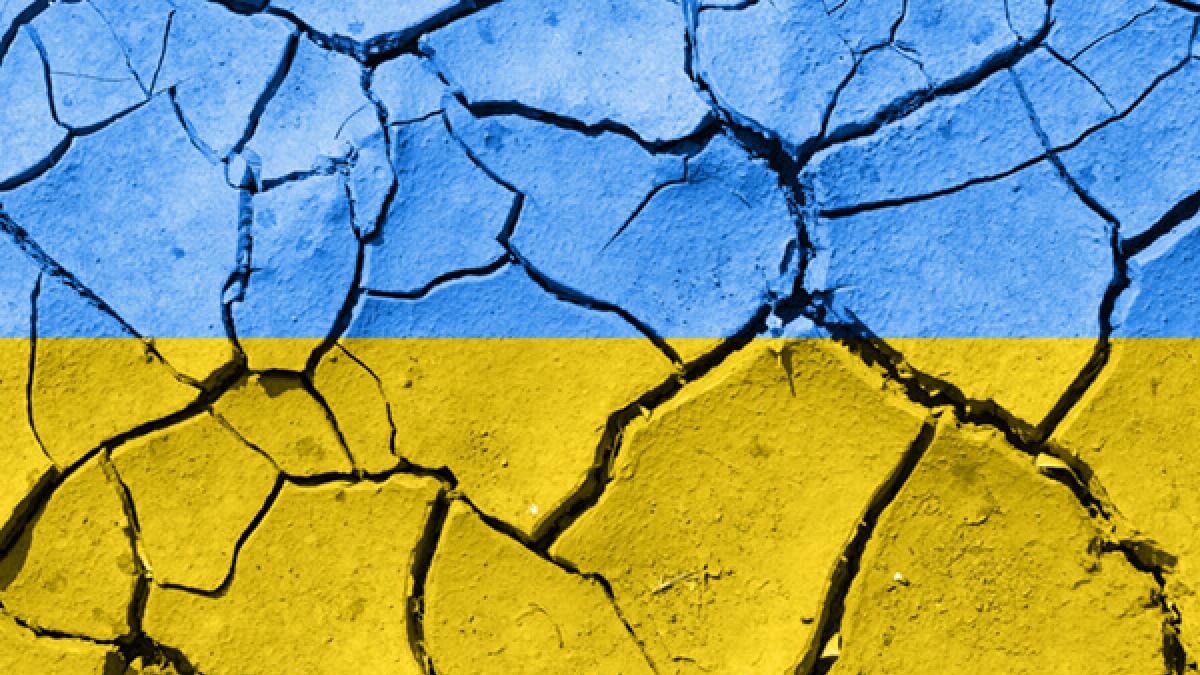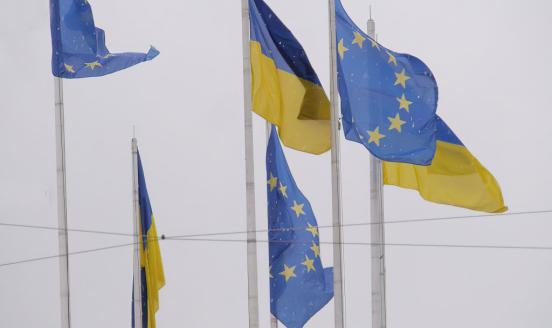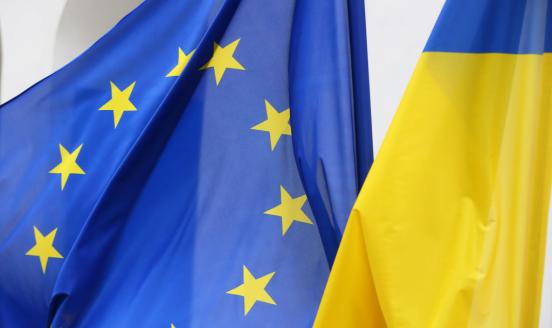Ukraine: The struggle for reforms continues
The modernisation of the Ukrainian economy and state continues to develop at an unsatisfactory pace due to a lack of pro-reform political consensus. T

Introduction
In the Bruegel Policy Contribution series published in September 2017, I analysed the economic and institutional reforms in Ukraine which followed the so-called “Euromaidan” or “Revolution of Dignity” of 2013-2014 (Dabrowski, 2017). The conclusion from my contribution stated that, despite substantial progress achieved since 2014, reforms remained incomplete in many important areas. This decreased and delayed their positive results and made them potentially unsustainable (easier to reverse).
The purpose of this blog post is to update my previous analysis both in through recent macroeconomic data and a progress report on reforms.
A fragile stability and modest growth
As Table 1 illustrates, since 2016, the Ukrainian economy has returned to economic growth - albeit at slow pace. GDP growth of 2.4% in 2016 and 2.5% in 2017 was insufficient to compensate output losses in 2014 (by 6.6%) and 2015 (by 9.8%). The IMF World Economic Outlook of April 2018 predicted a modest growth rate of 3.2% in 2018.
Slow recovery can be explained by several factors: security risks and uncertainties stemming from the continuous conflict in Donbass; an unfavourable business climate and corruption; negative population growth and declining supply of labour; and, last but not least, political uncertainty associated with the forthcoming presidential and parliamentary elections of 2019.
On a positive note, the increasing gross national saving and total investment rates (see Table 1) can create favourable conditions for growth acceleration in the medium term.
Other macroeconomic indicators offer a mixed picture. On one hand, the relative stability of official reserve assets of the National Bank of Ukraine (Figure 1) and hryvna’s (UAH) exchange rate against the US dollar (Figure 2) lower - but do not entirely eliminate - the risk of a sudden currency crisis, at least on the scale experienced in 2014 and 2015.
On the other hand, Ukraine’s fiscal situation remains fragile. General government (GG) gross debt oscillates between 70 and 80% of GDP despite the partial debt reduction negotiated with private creditors in 2015-2016. This is a very high level for emerging market economy standards, particularly in a country which has suffered from repeated debt and currency crises in the not-so-distant past.
This also means that there are no real prospects of Ukraine’s return to private debt market without the continuation of an IMF programme[1]. Due to frozen energy prices, one cannot exclude the re-emergence of a quasi fiscal debt in the Naftogaz.
An analysis of revenue and expenditure flows (Table 1) provides additional insights into the nature of fiscal problems. Ukraine remains a high expenditure country in light of emerging market economies standards. Decline in GG total expenditure ratio to GDP in 2014 to 2016 has been partly reversed in 2017 and continues to grow. Apart from high spending related to war, social expenditure remains a meaningful item.
The long-debated pension reform approved in October 2017 did not relax fiscal constraints. On the contrary, it lead to substantial up-front costs of one-off revaluation of pension benefits, while expenditure saving generated by a longer minimum period of paying social security contribution (from 15 to 25 years and further to 35 years in 2028), less generous formula of calculating new pension benefits and further elimination of professional privileges will only come gradually in the next several years (Rybak, 2017). Furthermore, positive fiscal effects of the new eligibility criteria and new calculation formulas may not fully compensate the additional expenditure generated by one-off revaluation and subsequent regular indexations even in the medium term.
Corruption: the main obstacle to the continuation of the IMF programme
On March 11, 2015, the IMF Executive Board approved a four-year Extended Fund Facility (EFF) amounting to $17.5 billion (IMF, 2015). So far, approximately only half of this amount was disbursed. The last (fourth) tranche was disbursed in April 2017 (IMF, 2017a). As a result, in 2017 and the first half of 2018, Ukraine’s transaction balance with the IMF was negative. In other words, the repayment of previous IMF loans exceeded the new disbursements[2].
The upcoming fourth review of the EFF remains unfinished and disbursement of the fifth tranche is suspended as the Ukrainian side has not met the IMF’s conditions.
The most important IMF condition related to stepping up anti-corruption efforts[3]. This is also an expectation held by other international donors such as, for instance, the European Union (EU). Indeed, donors demanded the formation of the special High Anti-Corruption Court (HACC) which would adjudicate high-level corruption cases. To ensure its impartiality and professional credentials, the selection of judges to this court would be conducted by an independent panel with a substantial role for foreign experts.
After the long battle in the Rada (the Ukrainian parliament) the law on the HACC was approved in early June 2018. However, it remains incomplete and contains serious loopholes. As a result, the IMF expects further modification to improve it[4].
While corruption remains without a doubt the critical obstacle in the way of reforming the Ukrainian economy and state (see IMF, 2017b), the approach taken by the IMF and other donors is questionable. Indeed, it concentrates on fighting symptoms of corruption rather than eliminating its deep systemic roots (continued subsidisation and cross-subsidisation of energy prices, administrative overregulation, excessive state ownership, limited domestic competition, predatory behaviour of security and law-enforcement agencies, lack of effective limits on financing political parties and election campaigns from private sources, etc.) (Dabrowski, 2017).
Furthermore, even the best designed anti-corruption body has few chances to succeed in the insufficiently reformed political, institutional and economic environment. This has already been experienced by the National Anti-Corruption Bureau of Ukraine, the Specialised Anti-Corruption Prosecutor’s Office, and the National Agency for Prevention of Corruption: three institutions formed in 2014-2015 on the EU and IMF’s initiative.
Unfinished energy sector reform
The stalled reform of the energy sector is another obstacle towards the continuation of IMF support. It is worth remembering that adjustments of gas and district heating tariffs to the full cost recovery level was the flagship decision taken by the current Cabinet of Ministers (of the prime minister Volodymyr Groysman) at the very beginning of its term in May 2016. This not only eliminated huge subsidies to the gas sector and decreased import dependence, but also created economic room for restructuring of the Naftogaz, including the unbundling of gas transmission from production and distribution.
Unfortunately, the reform of Naftogaz has not progressed. Rather, motivated by the forthcoming election campaigns (see below), the tariff reform has partly been reversed due to the blocking of semi-annual automatic tariff adjustment mechanisms since October 2017.
As a result of higher import prices of natural gas, domestic gas tariffs for households fell again below the cost-recovery level. In 2017, the resulting losses were compensated from profit generated by international gas transit, selling gas to commercial users[5], and keeping prices for domestic gas producers on the low level which discouraged an increase of domestic production. Furthermore, amount of receivables (i.e.: payment arrears of households and communal gas consumers) increased again in 2017. Not surprisingly, the increased cross-subsidisation within Naftogaz makes its unbundling economically problematic. The IMF rightly insists on the return to automatic tariff adjustment mechanisms.
Cross-subsidisation (indirect financing of households by industrial purchasers) is also present within the electricity sector. Since March 2016, there is a controversy around the wholesale electricity tariff based on coal import prices via Rotterdam sea port (the so-called Rotterdam+ formula) that favours electricity producers - who, in fact, use cheaper coal from Russia or Donbass - at the cost of industrial consumers. In this context, the independence and impartiality of the National Energy and Utilities Regulatory Commission, the regulator, is put under question (see e.g., Gerus, 2016).
Stalled privatisation
There is no progress in privatisation efforts which have remained de facto stalled since the very beginning of the current reform round (2014). On the contrary, the share of state ownership has even increased as a result of banking sector restructuring and recapitalisation in 2014-2017, including the forced renationalisation of the largest Ukrainian bank (Privatbank) in December 2016 to avoid its potential collapse.
In reality, enterprises in various sectors which are fully or partly state-owned have become a convenient object of rent-seeking and profit-stripping in favour of Ukrainian oligarchs who either co-own them or exercise management control via political and administrative organs dependent on them.
The same concerns are expressed regarding land ownership and land market. The moratorium on the sale of agricultural land is regularly extended each year by the overwhelming majority of the Rada.
Launching a large-scale and transparent privatisation process with unrestricted participation of foreign investors (similar to many Central and Eastern European countries in 1990s, Western Balkan countries, and Georgia in 2000s) could help increase the investment rate and total factor productivity, modernize the economy, enhance competitiveness, decrease large public debt (see above) and undermine oligarchic dominance.
Little progress in reforming the political system
Little progress has been noted in reforming the dysfunctional and prone to corruption political system. As of date, the only adjustment improvement was related to the reform of election law, which passed the first reading in the Rada in November 2017 (Kyslytska, 2018) but it remains unclear whether its legislative process will be completed before the next parliamentary election (no later than November 2019). In essence, this draft law proposes to return to a proportional system with 4% passing threshold based on 27 regional lists. Voters would have the option to choose both a party as well as a concrete person from the candidate list.
The last two elections were organized according to the mixed system: half of MPs were elected proportionally based on a national closed party lists (with 5% passing threshold) and another half in one-seat constituencies based on the first-past-the-post principle. This gave oligarchs and various interest groups the opportunity to promote their candidates in one-seat constituencies.
However, the challenge is not limited to election law itself. The important elements of fair election processes such as the regulation limiting the financing of political parties and election campaigns by private sources or the role of private media are either unregulated, regulated inadequately or not being enforced. This creates room for political corruption and potential external interference into the election process (Aslund, 2018a).
Unfortunately, there is little or no progress in other important fields such as the reform of the constitutional model of executive power (see Choudhry et al., 2018), the judiciary (beyond creation of the HACC – see above), the General Prosecution Office, the security service, or on decentralisation (power devolution to regions and municipalities). However, regarding the last sphere, some positive changes have happened in practice, mainly via means of fiscal decentralisation despite freezing respective constitutional and legislative changes in the Rada (Hanushchak et al., 2017).
The role of external support
Since 2014, Ukraine has received substantial international support in various spheres. Starting from a geopolitical perspective, the economic and political sanctions of the US, EU, and other developed countries against Russia has helped protect Ukraine against its neighbour’s aggressive moves, although they could not stop them completely or eliminate their negative consequences (like the partial loss of territory). Several members of the North Atlantic Treaty Organisation helped modernize Ukraine’s army and security forces.
On an economic front, the IMF offered meaningful financial and technical assistance. Its conditionality went far beyond traditional macroeconomic performance criteria, addressing governance issues such as corruption reduction as well as public administration and judiciary reform. Even though the prioritisation of IMF conditionality occasionally raises questions (see above), it helped accelerate reforms and improve macroeconomic equilibria.
The EU closely cooperated with the IMF by financially backing its programmes and even adding on its own conditionality points, especially in the institutional sphere. It also offered Ukraine the Association Agreement with the Deep and Comprehensive Free Trade Area (DCFTA) – the implementation of which could help conduct several important structural and institutional reforms[6] as well as visa-free travel opportunities to Ukrainian citizens.
The big question is whether the EU has further meaningful incentives in its disposal without offering Ukraine membership perspective (even in a very distant future) as it was done in 2003 in respect to the Western Balkans (Dabrowski and Myachenkova, 2018). Unfortunately, the latter does not seem politically realistic in the near future.
Ukraine is running out of time
Clearly, political developments are responsible for reform stagnation. The current government lacks a stable majority in the Rada and, similarly to the President’s rankings, has a low popularity rating. In addition, the presidential and parliamentary election campaigns have already begun even though they are scheduled for March and autumn 2019 respectively. Given the period required to form a new government after the election, the following year and a half will not be conductive for reforms. Moreover, the winners of both election rounds and the nature of their programmes remain unclear as there is no clear favourite as of yet (Aslund, 2018b).
This is a bad news because Ukraine is running out of time. More than four years have passed since the Euromaidan and only a fraction of the expected reform agenda was completed. Economic growth has been insufficient to provide perceptible recovery or meet the most urgent social needs. This makes Ukrainian society increasingly impatient and disappointed, thus potentially receptive to populist demagogy and external manipulation.
Government finances and Ukrainian currency have not stabilized on a firm basis and remain vulnerable to economic and political shocks of both domestic and external origin. The country remains dependent on financial support of the IMF and other external donors; however, the current positive trends in the European and world economy will not continue indefinitely. Moreover, the international community is increasingly disappointed with the slow progress of Ukrainian reforms and the inability of Ukrainian authorities to limit corruption, rent-seeking and state capture.
Acknowledgments
I would like to thank Andrei Blinov and Dmytro Boyarchuk for an exchange of views on Ukraine’s economic situation. I would also like to extend this thanks to Jochen Andritzky, Robert Kirchner, Alexander Lehmann, Nicolas Véron and Guntram Wolff for their comments on an earlier version of this blog post. The author takes the sole responsibility for its content and presented opinions.
References:
Akulenko, L. (2018) ‘Liubov Akulenko: Ukraine slow in adopting EU Association Association requirements’, Kyiv Post, 14 March, available at https://www.kyivpost.com/article/opinion/op-ed/liubov-akulenko-ukraine-slow-adopting-eu-association-association-requirements.html
Aslund, A. (2018a) ‘How to Keep the Kremlin and the Oligarchs Out of the Ukrainian White House’, UkraineAlert, Atlantic Council, 11 June, available at http://www.atlanticcouncil.org/blogs/ukrainealert/how-to-keep-the-kremlin-and-the-oligarchs-out-of-the-ukrainian-white-house
Aslund, A. (2018b) ‘Ukraine Is Worth Fighting For’, Emerging Europe, 3 May, available at https://emerging-europe.com/voices/ukraine-worth-fighting/
Choudhry, S., Sedelius, T., and Kyrychenko J. (2018) ‘Semi-presidentialism and Inclusive Governance in Ukraine. Reflections for Constitutional Reform’, International Institute for Democracy and Electoral Assistance, The Center for Constitutional Transition, and Centre for Policy and Legal Reforms, 19 April, available at http://pravo.org.ua/img/zstored/files/semi-presidentialism-and-inclusive-governance-in-ukraine_ENG.pdf
Dabrowski, M. (2017) ‘Ukraine’s unfinished reform agenda’, Bruegel Policy Contribution, Issue 24/2017, September 27, available at https://bruegel.org/wp-content/uploads/2017/09/PC-24-2017-1.pdf
Dabrowski, M., and Myachenkova, Y. (2018) ‘The Western Balkans on the road to the European Union’, Bruegel Policy Contribution, Issue 04/2018, 22 February, available at https://bruegel.org/wp-content/uploads/2018/02/PC-04_2018.pdf
Gerus, A. (2016) ‘What’s Wrong With the ‘Rotterdam Formula’?’, Ukrayinska Pravda, 22 June, available at https://www.pravda.com.ua/eng/columns/2016/06/22/7116844/
Hanushchak, Y., Sydorchuk, O., and Umland, A. (2017) ‘Ukraine’s most underreported reform’, New Eastern Europe, 13 April, available at http://neweasterneurope.eu/2017/04/13/ukraine-s-most-underreported-reform-decentralisation-after-the-euromaidan-revolution/
IMF (2015) ‘Ukraine: Request for Extended Arrangement under the Extended Fund Facility and Cancellation of Stand-By Arrangement—Staff Report; Press Release; and Statement by the Executive Director for Ukraine’, Country Report No. 15/69, available at http://www.imf.org/external/pubs/ft/scr/2015/cr1569.pdf
IMF (2017a) ‘Ukraine: 2016 Article IV Consultation and third review under the Extended Arrangement, Requests for a Waiver of Non-Observance of a Performance Criterion, Waiver of Applicability, Rephasing of Access and Financing Assurances, Review-Press Release; Staff Report; and Statement by the Executive Director for Ukraine’, Country Report No. 17/83, available at http://www.imf.org/~/media/Files/Publications/CR/2017/cr1783.ashx
IMF (2017b) ‘Ukraine: Selected Issues’, Country Report No 17/84, available at http://www.imf.org/~/media/Files/Publications/CR/2017/cr1784.ashx
Kyslytska, A. (2018) ‘Why Ukraine Urgently Needs Electoral Reform’, Ukraine World, May, http://ukraineworld.org/2018/05/why-ukraine-urgently-needs-electoral-reform/
Rybak, V. (2017): 10 Things You Should Know About Ukraine’s Pension Reform, Ukraine World, October 10, http://ukraineworld.org/2017/10/10-things-you-should-know-about-ukraines-pension-reform/
[1] The current IMF programme will expire in March 2019, at the peak of presidential election campaign (see below). If a new programme is not agreed and approved upon in advance, the expiration of the current one can trigger a nervous reaction from financial markets.
[2] http://www.imf.org/external/np/fin/tad/extrans1.aspx?memberKey1=993&end…
[3] See IMF (2017b) and http://www.imf.org/en/News/Articles/2017/12/07/pr17473-ukraine-imf-statement-on-the-efforts-to-fight-corruption
[4] See http://www.imf.org/en/News/Articles/2018/06/19/pr18244-statement-by-the-imf-managing-director-on-ukraine
[5] See http://www.naftogaz.com/www/3/nakweben.nsf/0/834D70105E419722C225827A0041BDF7?OpenDocument&year=2018&month=04&nt=News&
[6] Analysis of implementation of the DCFTA goes beyond thematic framework of this note. However, its pace remains unsatisfactory on the Ukrainian side (Akulenko, 2018).



